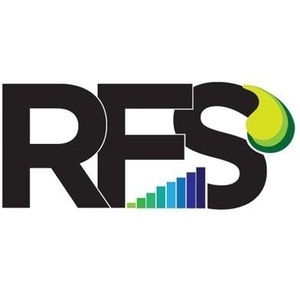EPA to hold virtual workshop on biointermediates on Sept. 29

September 15, 2022
BY Erin Krueger
The U.S. EPA has announced it will hold a virtual public workshop on Sept. 29 that focuses on the new biointermediates provisions of the Renewable Fuel Standard program. Attendees must preregister by Sept. 27.
The agency finalized long-delayed regulations related to the use of biointermediates as part of a final rule released in June 2022. The rule’s provisions related to biointermediates enacted new compliance requirements that apply when renewable fuel is produced through sequential operations at more than one facility. The new regulations focus on the production, transfer and use of biointermediates, including recordkeeping and reporting requirements. The rule includes specific provisions for the use of biocrude, free fatty acid (FFA) feedstock, and undenatured ethanol used as biointermediates. It also addresses the use of biomass-based sugars, digestate, glycerin and other biointermediate feedstocks. The rule, however, does not address the use of biogas as a biointermediate. In the rule, the agency said it plans to address the use of biogas as a biointermediate when it addresses issues related to the use of biogas to make renewable electricity RINs (eRINs) in a future action.
Under the rule, the EPA has finalized a requirement that the processing of a biointermediate must occur at a single facility before the biointermediate is transported to a renewable fuel production facility. The rule also restricts the transfer of biointermediates from a biointermediate production facility to a single renewable fuel production facility. Renewable fuel production facilities, however, may receive biointermediates from multiple biointermediate production facilities.
The virtual public workshop will provide the opportunity for EPA to update stakeholders on how to register and comply with requirements for producing, transferring and using biointermediates. There will also be a question-and-answer period for stakeholders to ask questions related to biointermediates. An agenda will be released approximately one week prior to the event.
Advertisement
Advertisement
Additional information is available on the Federal Register website.
Advertisement
Advertisement
Related Stories
The U.S. EPA on July 8 hosted virtual public hearing to gather input on the agency’s recently released proposed rule to set 2026 and 2027 RFS RVOs. Members of the biofuel industry were among those to offer testimony during the event.
The USDA’s Risk Management Agency is implementing multiple changes to the Camelina pilot insurance program for the 2026 and succeeding crop years. The changes will expand coverage options and provide greater flexibility for producers.
EcoCeres Inc. has signed a multi-year agreement to supply British Airways with sustainable aviation fuel (SAF). The fuel will be produced from 100% waste-based biomass feedstock, such as used cooking oil (UCO).
President Trump on July 4 signed the “One Big Beautiful Bill Act.” The legislation extends and updates the 45Z credit and revives a tax credit benefiting small biodiesel producers but repeals several other bioenergy-related tax incentives.
CARB on June 27 announced amendments to the state’s LCFS regulations will take effect beginning on July 1. The amended regulations were approved by the agency in November 2024, but implementation was delayed due to regulatory clarity issues.
Upcoming Events










